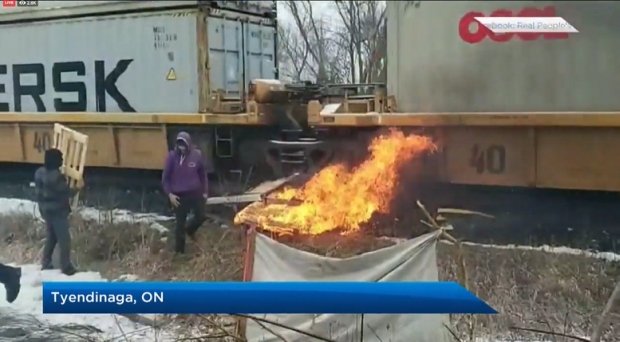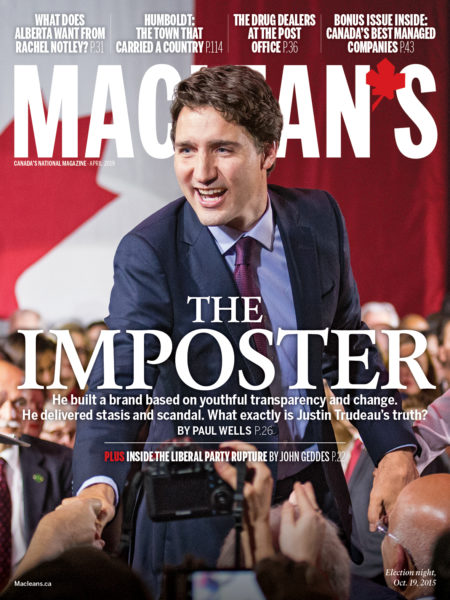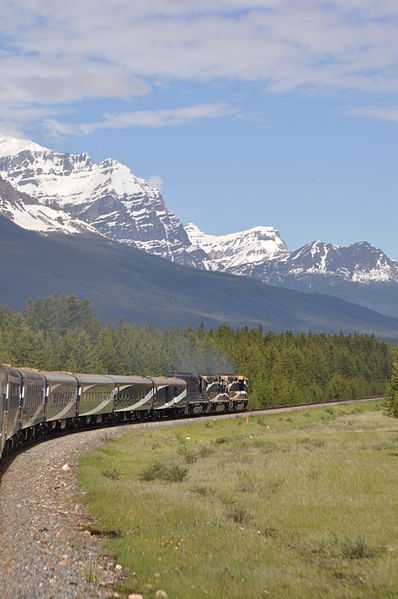Minimum-wage laws can even affect the level of racial discrimination. In an earlier era, when racial discrimination was both legally and socially accepted, minimum-wage laws were often used openly to price minorities out of the job market.
In 1925, a minimum-wage law was passed in the Canadian province of British Columbia, with the intent and effect of pricing Japanese immigrants out of jobs in the lumbering industry.
A Harvard professor of that era referred approvingly to Australia’s minimum wage law as a means to “protect the white Australian’s standard of living from the invidious competition of the colored races, particularly of the Chinese” who were willing to work for less.
In South Africa during the era of apartheid, white labor unions urged that a minimum-wage law be applied to all races, to keep black workers from taking jobs away from white unionized workers by working for less than the union pay scale.
Some supporters of the first federal minimum-wage law in the United States — the Davis-Bacon Act of 1931 — used exactly the same rationale, citing the fact that Southern construction companies, using non-union black workers, were able to come north and underbid construction companies using unionized white labor.
These supporters of minimum-wage laws understood long ago something that today’s supporters of such laws seem not to have bothered to think through. People whose wages are raised by law do not necessarily benefit, because they are often less likely to be hired at the imposed minimum-wage rate.
Thomas Sowell, “Why racists love the minimum wage laws”, New York Post, 2013-09-17.
August 27, 2020
QotD: Racism and the minimum wage
May 23, 2020
“If you want to advance your cause, make friends with the Ontario Mohawks. They pretty much run the country.”
Chris Selley on the utter, abject defeat of the Canadian and British Columbian governments in their “negotiations” with the hereditary leadership of the Wet’suwet’en:

“Vancouver Solidarity with Wet’suwet’en” by jencastrotakespictures is licensed under CC BY-NC-SA 2.0
“We’re not understanding what is the rush here,” elected chief Maureen Luggi told CBC — a sentiment Naziel echoed. “We sat here for 30 years already, waiting and talking about it,” Naziel said. “We can wait another year or two. It’s not going to hurt anything.”
Indeed, from the average Wet’suwet’en member’s point of view, there is no hurry at all. The logical thing would be to fix the governance structure, heal the wounds that need healing, and then undertake these monumental negotiations.
But for the governments involved, this wasn’t about offering the Wet’suwet’en a better future. It was about putting out a fire: A group of Mohawks thousands of kilometres away in eastern Ontario had blockaded CN’s main line in solidarity with the hereditary chiefs; and the Ontario Provincial Police, armed with an injunction demanding the blockade end, refused to lift a finger.
Something had to give. Somebody had to get screwed, and it was the rank-and-file Wet’suwet’en. For no good reason whatsoever, the hereditary chiefs now hold all the keys to their future. It’s an appalling and appallingly predictable result.
“I don’t see why the government gave them this, because this has got nothing to do with what the protests across Canada started from,” chief Dan George of Ts’il Kaz Koh First Nation told CBC. “Those issues are not resolved. They can set up roadblocks again and do it again, and that’s what I’m worried about.”
If negotiations don’t go well, that might well prove to be a prescient remark. But for now, the hereditary chiefs’ victory is total: They have every reason to stay the course. The message to other groups, however, is clear: If you want to advance your cause, make friends with the Ontario Mohawks. They pretty much run the country.
March 6, 2020
“[A] decision of such absolutely mind-boggling stupidity and irresponsibility that it could only have come from Justin Trudeau, himself”
Ted Campbell on the Trudeau government’s apparent abject surrender to the Wet’suwet’en hereditary chiefs (“apparent” because we still don’t have any details of the “deal”):
The Wet’suwet’en hereditary chiefs’ agenda seems simple enough to me. They don’t like the notion that the Wet’suwet’en people can elect band councils that might act for the good of the people and < quelle horreur > the people might even disagree with the hereditary chiefs. Some (male) hereditary chiefs seem to have managed to strip some other (female) chiefs of their titles because they, the female chiefs, sided with the elected councils. This is, in 21st century British Columbia, something of a replay of 17th century Europe and the end of the divine right of kings, except that the Wet’suwet’en hereditary chiefs might succeed where Charles I and Louis XVI failed because they have the dimwits in the Trudeau cabinet on their side.
To make matters worse, as John Morris of the Canadian Press points out in an article published in the Globe and Mail, the government negotiated with the hereditary chiefs, only ~ with the people who broke the law; and they ignored the elected leaders ~ the people who played by the rules.
How typically Trudeau: he surrenders, cravenly, to the reactionary, anti-democratic lawbreakers and, simultaneously, shuts out the elected representatives of the Wet’suwet’en peoples. Is that the Canada in which we all want to live? Is that the sort of “leadership” for which millions of Canadians voted in 2019? I think not. Justin Trudeau is both a fool and a coward and his party, the Liberal Party of Canada, has a duty to Canada: throw the bum out!
But, not to worry, the Trudeau regime’s
propagandistspress agents will tell us that it’s all good, we “won,” something or other … didn’t we? And who cares if we lost something nebulous like honour and responsibility? It’s all about reconciliation, isn’t it? What do trivialities like democracy and the national interest matter when really important things, like preserving the power of hereditary chiefs over elected councils, are at stake? But that reactionary system seems to have been strengthened, and so “It was a famous victory.”
February 21, 2020
Justin Trudeau, Prime Empathizer of Canada
The Prime Minstrel channels his inner Bill Clinton, although he just manages to avoid saying that he “feels our pain”:
A strange thing happened Tuesday morning. That strange thing was … an important and interesting exchange on the floor of the House of Commons. It happened during routine proceedings, and not in the Punch-and-Judy exchange of question period. The leaders of the various parties in the House stood and outlined positions on the rail blockades being conducted around the country in support of Wet’suwet’en opponents of B.C.’s Coastal GasLink pipeline.
First came the prime minister. “People are troubled by what they have been witnessing this past week,” he said. Our empathizer-in-chief, the emotional mascot of Confederation, was about to go to work. “Young, old, Indigenous and newcomers are asking themselves what is happening in the country … On all sides, people are upset and frustrated.”
The next three words out of his mouth were: “I get it.” Huh. Is that the sort of thing you say when you’ve actually gotten it? If a friend called you up in a shattered emotional state because he had just lost his job, as people are starting to lose jobs to the Wet’suwet’en solidarity protests, would you say “I get it”?
Beyond this tin-eared reassurance, Trudeau did not have much specific to say, and what there was seemed to contradict itself. “Our government’s priority is to resolve this situation peacefully, but also to protect the rule of law in our country,” he promised. “That is a principle we will always stand up for.” One would have thought the role of a prime minister was to apply the law rather than to “stand up for” it. He gave his usual spiel about the myriad of ways in which the federal government has failed First Nations, again speaking as though someone else were in charge. Certainly very little of it is his own fault: the government he leads has “invested more than any other … to right historic wrongs.”
Trudeau worried aloud that Canada might become “a country where people think they can tamper with rail lines and endanger lives,” but he seemingly renounced the use of force (it’s not “helpful”) against protesters who openly discuss sabotage. What the prime minister means when he talks of the “rule” of something called “law” has been left imperfectly clear.
Chris Selley suggests the government’s fecklessness will continue to prevent any solutions being implemented:
The stupefying weightlessness of Justin Trudeau’s government has never been more evident than in recent days, as it tries to arrange an end to the Mohawk blockade of CN’s main line near Belleville, Ont. At times it seems as if it might just float away, like an improperly tethered bouncy castle in a thunderstorm.
This week has been particularly windy.
[…]
The situation is ludicrous: Because Ontario’s independent provincial police won’t enforce a court injunction, the federal public safety minister seems to be in discussions with B.C.’s solicitor general about whether B.C.’s independent provincial police might back off enforcing a different injunction.
And the worst part of this absurdist theatre festival is how difficult it is to imagine a better alternative. Conservatives continue to call on Trudeau to somehow fix the problem, but the way Canada is set up, it’s really not a federal issue. The RCMP might have some jurisdiction over the railway as federally regulated infrastructure, said University of Toronto law professor Kent Roach, but that hasn’t happened in past cases. It wouldn’t even be up to Trudeau to send in troops: under the Emergencies Act, Roach said, a provincial solicitor-general has to request it.
These are structural issues that any PM will face. Indeed, the biggest difference between the Liberals’ approach to this blockade and the Conservatives’ approach to the 2013 Idle No More protests, which included a 13-day blockade of a CN line in southwestern Ontario, has been one of rhetoric and engagement. The Conservatives talked tougher, but Aboriginal Affairs rebuffed CN’s request to intervene. (Those protesters eventually obeyed a court injunction and left.) The Liberals needlessly tie themselves in knots and insult our intelligence — they know no other way — but they clearly believe it’s their job to broker some kind of resolution.
It’s tough to say which approach is likelier to work. At this point odds seem to favour “neither.” If you have a better, workable idea to get the trains moving, for God’s sake get on the horn to Ottawa.
February 16, 2020
The Canadian economy taken hostage while the PM swans around the world schmoozing for a temporary Security Council seat
Chris Selley on the state of play in the stand-off between (some) First Nations protesters and their temporary fellow travellers of the various permanent protest class:

“DSC02285” by Bengt 1955 is licensed under CC BY-NC 2.0
The majority of Wet’suwet’en First Nation members support the Coastal GasLink natural gas pipeline project, and they are in an objectively peculiar situation. On the one hand, the RCMP is doing its best to clear away the protesters and let construction proceed. On the other hand, anti-pipeline protesters claiming solidarity with the Wet’suwet’en have created chaos in their name — most notably the total shutdown of CN Rail’s eastern Canadian network, the cancellation of nearly every Canadian passenger train, and the layoffs and untold economic costs that go with that.
If protesters acknowledge the diversity of opinion among the Wet’suwet’en at all, they will defer to the authority of five hereditary chiefs who oppose the project, or observe that the five elected Wet’suwet’en band councils — all of which have signed community benefits agreements — represent a form of settler democracy imposed by the Indian Act.
[…]
Clearly the Wet’suwet’en are a divided community, including on the most basic questions of how they should be governed. It’s a mess. Mind you, look at the state of Canada as a whole.
Just as the RCMP have court authorization to clear protesters and encampments along the pipeline route, the Ontario Provincial Police have court authorization to clear the Mohawk rail blockade near Belleville, Ont. Unlike the RCMP, the OPP refuses to exercise its authority. And we just have to live with that. Conservative politicians are barking at Justin Trudeau to “enforce the law,” but he doesn’t give orders to the OPP, and neither does Ontario Premier Doug Ford, and nor should we want them to.
Still, you might expect senior ministers to have moderately stern words for folks illegally causing economic harm. You might expect the prime minister, at minimum, to be in the country. Instead, Trudeau spent the week swanning around Africa drumming up support for the UN Security Council seat with which he remains unaccountably obsessed, then decamped for the Munich Security Conference, where he was photographed warmly embracing Iranian foreign affairs minister Mohammad Javad Zarif, five weeks after Iran blew an airliner full of Canadians out of the sky over Tehran.
The Little Potato is probably doubly happy to have a valid (in his own mind) excuse for not being in the country at this particular time. He loves being the centre of attention … as long as that attention is friendly. He doesn’t handle situations well if the tempers are higher and the hostility is rising … like much of Canada right now.
The pipeline is a provincial project, not a federal one, but if the OPP won’t end the blockade and the feds aren’t willing to take truly extraordinary measures, then at some point in the foreseeable future it may well make short-term economic sense to give in to their demands. Maybe the feds can buy the pipeline from Coastal GasLink and shut it down.
And what if the Mohawks do lose interest, or are somehow induced to stand down? That now counts as the best-case scenario, and it will have involved shutting down the CN railway for at least a week — maybe two, maybe three — with enormous consequences for people’s livelihoods and the economy as a whole, all in the name of killing a project supported by the vast majority of Indigenous people affected by it. And it will happen again, as many times as any group wants it to, on whatever issue they want it to, for as long as they want it to. Unless someone in power does something unusually bold and concrete in the very near future – and it’s not even clear what that thing would be — we are well on the road as a country to being terminally screwed. In the meantime, we certainly have no lessons on accountable government to give the Wet’suwet’en.
January 19, 2020
“… if the Constitution is a threat to killer whales, why, then, to hell with the Constitution”
Colby Cosh reviews the sad tale of the British Columbian government’s defeat before the Supreme Court of Canada over pipelines:
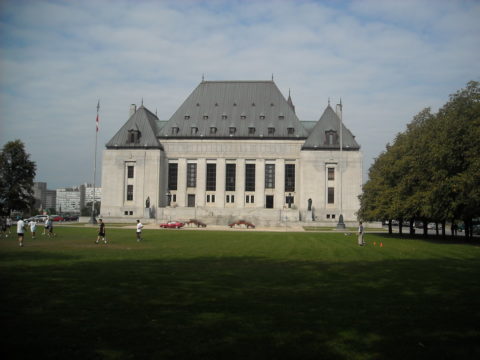
“Supreme Court of Canada, Ottawa” by daniel0685 is licensed under CC BY 2.0
So … yeah, that didn’t go real well. On Thursday the province of British Columbia sent its chosen representative, lawyer Joseph Arvay, to the Supreme Court to plead the oral case for B.C.’s law regulating bitumen in pipelines. John Horgan’s government had attempted to establish its own permit regime for pipeline contents, which are, under accepted constitutional doctrine, a federal responsibility. The B.C. Court of Appeal had wiped out the provincial law unanimously last summer.
Arvay’s task was widely recognized as a Hail Mary pass. But things got even more awkward as the hearing commenced and the justices of the Supreme Court interrogated him on his province’s logical, environmental, and even economic premises. An appellate court’s disposition is sometimes hard to ferret out in its hearings, but this one was so rough that Arvay was reduced to grumbling “If I’m not going to win the appeal, then I don’t want to lose badly.” Alas, the judges did not even see the need to deliberate over their reasons: they at once, and as one, ruled against B.C.
Which is not to suggest that Mr. Arvay didn’t do the best possible job. If we’re sticking with the football metaphor, the problem all along was the game plan. Given the clear federal responsibility for interprovincial pipelines, as “Works and Undertakings connecting … Provinces,” the B.C. government had no choice but to downplay the conflict between the purpose of its proposed environmental permits and the purpose of the ones the federal government hands out. Arvay had to try to convince the ermine gang that a law applying exclusively to the contents of a pipeline wasn’t a regulation of the pipeline.
“The only concern the premier, the attorney general and the members of the government have had is the harm of bitumen,” Arvay protested. “It’s not about pipelines. They’re not anti-pipelines, they’re not anti-Alberta, they’re not anti-oilsands, they’re not anti-oil.”
It’s enough to almost make one sympathetic to the more radical strategy of argument pursued at the hearing by Harry Wruck, a lawyer for Ecojustice Canada who appeared as an intervener supporting B.C. Wruck put before the Supreme Court the same idea he had presented to the BCCA: if the Constitution is a threat to killer whales, why, then, to hell with the Constitution.
July 25, 2019
In British Columbia, “butthurt” damages can exceed $75,000 under Human Rights legislation
In the Post Millennial, Jordan Schroeder illustrates how BC human rights rules have created a new class of tort:
I would argue that the issue is not with the BC Human Rights Tribunal itself, but with the perverse incentive of litigating for profit that is created by the BC Human Rights Code. The BC Human Rights Code creates this incentive through a type of damages called “injury to dignity, feelings, and self-respect.”
This head of damages is harmful to human rights law in BC. It is unfair to the defendants, and it incentivizes predatory litigation. All of this causes British Columbians to lose trust in the important role that the tribunal can play in redressing wrongs.
Section 37 of the BC Human Rights Code allows the tribunal to make an award of damages to a complainant for “injury to dignity, feelings, and self-respect”. The tribunal is permitted to award any amount for this that it sees fit.
By the admission of the Human Rights Tribunal [PDF], the awards for this type of damages is high and is “trending upwards.” For example, in the Oger v Whatcott case, Whatcott was ordered to pay $35,000 for discriminatory speech against Morgane Oger. Whatcott had made critical comments about Oger based Oger’s transgender identity. In the same case, the tribunal cited $5,000 awards as “lower” awards. Other cases have seen awards of up to $75,000.
Awards for hurt feelings are unique to human rights law. Damages awarded in every other area of law are based on the principle that the award should only make the complainant whole. A complainant should never be better off after receiving the damages award.
For example, consider if a company leased a concert hall to a business that wanted to use the space to put on a production. Imagine that business stood to make $50,000 in profit from a sold-out production.
If the rental was cancelled by the company leasing the concert hall in breach of the contract, that company would have to pay the other party $50,000, representing all of the profit the other party could have made. The other party is not better off after the award. They are only made whole.
In contrast, awards for hurt feelings undoubtedly put the complainant better off than they would have been had the human rights violation not occurred in the first place. It is self-evident that an award in the tens of thousands of dollars outweighs any injury to feelings caused by the discriminatory speech or action.
Why is it a problem to have an award that amounts to more than what the complainant actually lost? Obviously, there is the problem that it saddles a defendant with a massive financial burden that doesn’t reflect the damage that they caused. A woman starting a small business who is ordered to pay a “small” award of $5,000 dollars would likely find it ruinous.
May 17, 2019
QotD: Mark Steyn and the “Human” “Rights” Tribunals
It’s statements like these that have landed Steyn on various hit lists, including, most famously, those of the Canadian Human Rights Commission, the British Columbia Human Rights Tribunal and the Ontario Human Rights Commission, which are strange quasi-judicial bodies that were stirred to action a decade ago by the Canadian Islamic Congress. Between 2005 and 2007 the weekly news magazine Maclean’s published eighteen articles by Steyn, including an excerpt from America Alone, that were all deemed “Islamophobic” by the human rights tsars. Without going into excruciating detail about the various legal jockeying that took place — who knew one country could have this many commissions and tribunals that could all attack simultaneously? — Steyn and Maclean’s were charged with inciting hatred against Muslims, setting in motion an endless process of discovery and hearings.
“We were trying to lose,” said Steyn. “We wanted them to find us guilty so that we could appeal to a real court, hopefully the Supreme Court, and prove that these hate-speech laws are more absurd than any laws outside North Korea. Before I came along, these human rights tribunals had a 100 per cent conviction rate! The fact that we fought back meant that I became an albatross around their neck. The Thought Police were exposed to massive unrelenting publicity for the first time, and they didn’t expect that. They didn’t expect us to push back. But free speech is on the retreat, and this was not a time for a faint-hearted defence.”
The Canadian Human Rights Commission eventually bowed out of their part in the imbroglio, saying the articles were “polemical, colourful and emphatic” but failed to satisfy the definition of writings “of an extreme nature” as defined by the Supreme Court. But the British Columbia Human Rights Tribunal was not so sure, holding a five-day hearing during which the Canadian Islamic Congress presented evidence that twenty articles in Maclean’s presented Islam as a violent religion and Muslims as violent people, with the Islamist lawyer using words like racist, hateful, contemptuous, Islamophobic and irresponsible. Mahmoud Ayoub, a Harvard historian of religion, testified that Steyn didn’t understand the meaning of the word jihad and that, of the 1.5 billion Muslims in the world, less than a million interpreted jihad to justify violence against non-believers. (I don’t know of any other religion in the world that has merely a million devotees willing to kill, but that’s what the man said.)
Mark Steyn, interviewed by John Bloom, “Mark Steyn, Cole Porter and Free Speech”, Quadrant, 2017-05-11.
May 4, 2019
January 20, 2019
Identifying the real victim in the Burnaby South byelection mini-scandal
Andrew Coyne suggests that we should sympathize with the true victim:
You have to feel for the Liberal Party of Canada, who are surely the real victims in the Karen Wang affair.
The party had innocently selected the B.C. daycare operator to run in next month’s byelection in Burnaby South based solely on her obvious merits as a failed former candidate for the provincial Liberals in 2017, and without the slightest regard to her Chinese ethnicity, in a riding in which, according to the 2016 census, nearly 40 per cent of residents identify as ethnically Chinese.
Imagine their shock when they discovered that she was engaging in ethnic politics.
In a now-infamous post on WeChat, a Chinese-language social media site, Wang boasted of being “the only Chinese candidate” in the byelection, whereas her main opponent — NDP Leader Jagmeet Singh — is “of Indian descent.”
The party was instantly and publicly aghast. Pausing only to dictate an apology to be put out under her name (“I believe in the progress that Justin Trudeau and the Liberal team are making for British Columbians and all Canadians, and I do not wish for any of my comments to be a distraction,” etc etc), party officials issued a statement in which they “accepted her resignation.” Her online comments, the statement noted, “are not aligned with the values of the Liberal Party of Canada.”
Certainly not! How she got the idea that the Liberal Party of Canada was in any way a home for ethnic power-brokers prized for their ability to recruit members and raise funds from certain ethnic groups, or that it would even think of campaigning in ridings with heavy concentrations of voters from a given ethnic group by crude appeals to their ethnic identity — for example by nominating a candidate of the same ethnicity — must remain forever a mystery.
January 17, 2019
Jagmeet Singh and the federal NDP
Chris Selley on the political issues afflicting federal NDP leader Jagmeet Singh as he tries to win a byelection in British Columbia:
More and more New Democrats seem concerned that Jagmeet Singh mightn’t have been the best choice for leader, let alone deserving of a whopping 54 per cent first ballot victory. His various alleged crimes include rendering himself invisible for months, imposing draconian punishments on popular MPs, and going on TV to suggest we stop importing Saudi oil and get it from other countries instead — at a time when Alberta’s NDP government is fighting both for pipelines and for its continued existence.
[…]
Tom Mulcair was a pro. Dumping him appears to be the dumbest thing the NDP ever did. Still, if Singh wins his seat, there is reason to hope he might grow into the job. To skeptics he evinces a distinctly Trudeauvian brand of superficiality, and a similar gift for quotes that land well but fall to pieces if you actually read them back. That hasn’t hurt Trudeau, though — not much and not yet. Singh, a criminal lawyer, certainly boasts a more impressive resumé outside of politics. And goodness knows there are more than enough avenues for any NDP leader to attack a Liberal government that promised us the moon but left us conspicuously earthbound.
If Singh is an anchor on NDP fortunes, it doesn’t seem to be massively heavy one. Nanos Research has them at 15.4 per cent, as of last week — not good at all, but well within recovery distance of their 19.7 per cent performance in the 2015 election. Pre-campaign polls are generally held to be meaningless. Again assuming Singh wins his seat, he has plenty of time to introduce himself and his vision for the NDP.
It’s also possible, though, that the federal NDP in 2019 is a busted flush no matter who’s leading it. The combination of personal charisma and political circumstance that propelled it to Official Opposition status in 2011 might just be throttling back down toward cruising speed.
We shouldn’t overestimate just how improbable Jack Layton’s achievements were. He dragged the NDP to the political centre, where the votes are, marginalizing various breeds of crackpots along the way, while keeping the famously restive portside of the party relatively content. Then he stole a huge chunk of the Quebec nationalist vote in the dead of night.
When Jagmeet Singh was elected NDP leader, I really did think he’d be a significant challenge to Justin Trudeau due to the media’s apparent fascination with Singh (a love affair that appeared to be as deep and lasting as that of Justin’s teeny-bopper fan club for their darling), but it faded very quickly indeed. I guess as far as the Canadian media is concerned, there can only be one…
The byelection is looking pretty safe for Singh, as his Tory opponent beclowned himself quickly, and news broke on Wednesday that the Liberal candidate has withdrawn, after similarly beclowning herself:
BREAKING: Liberal Party says it has accepted Karen Wang's resignation as the party candidate in Burnaby South. That's in reaction to this story from @mdgmedia https://t.co/sPlEC9Djxr #cdnpoli pic.twitter.com/lZWbjPOMQ1
— Alex Ballingall (@aballinga) January 16, 2019
January 15, 2019
Jagmeet Singh’s conservative opponent in Burnaby South
Normally, the byelection campaign by a major party leader to gain a seat in the House of Commons doesn’t get quite this … snippy:
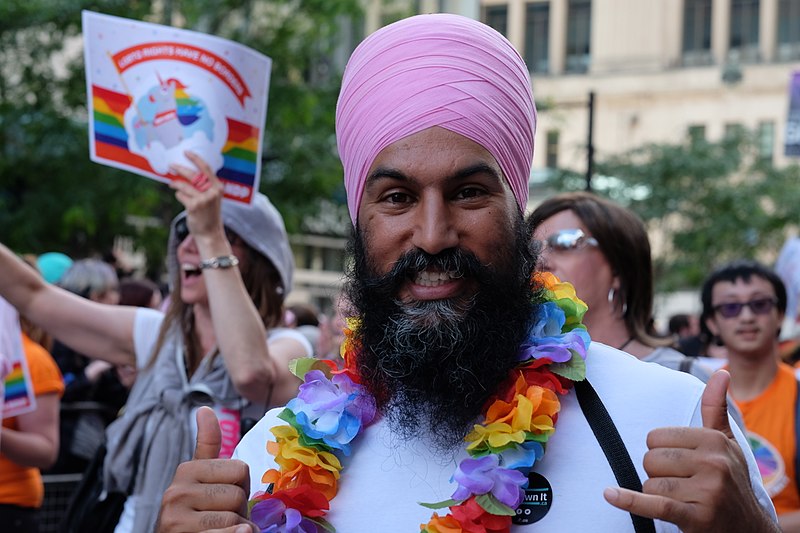
Federal NDP leader Jagmeet Singh taking part in a Pride Parade in June 2017 (during the leadership campaign).
Photo via Wikimedia.
Maybe someone should put in a kind word for Jagmeet Singh on the rare opportunities when an occasion presents itself. The federal NDP leader found himself on the right side of a ridiculous argument over the weekend as his byelection in the riding of Burnaby South got officially underway. Singh’s Conservative opponent for the open seat, commercial lawyer Jay Shin, promptly issued a press release suggesting that Singh was … apparently the wrong species of lawyer?
“While Jagmeet Singh has spent his pre-political career as a criminal defence lawyer keeping criminals out of jail, I have spent my legal career building Canadian businesses that create jobs and promote international trade,” Shin’s statement read.
When challenged by the Burnaby Now newspaper on his apparent suggestion that, as a former university instructor in International Mining Transactions, he was somehow ethically superior to the underpaid schmucks who provide criminal defence, Shin disavowed any such meaning.
Criminal lawyers “play an important role; everybody has a right to defence,” the Conservative candidate insisted. (Whew!) “What I’m saying is, he played that role. As a criminal lawyer, he defended criminals. That’s all I’m saying.”
One notices that even this characterization may leave a civil libertarian uneasy, since criminals aren’t criminals until the Crown successfully convicts them. A defence lawyer doesn’t “defend criminals”: he defends the accused. But maybe that is the sort of distinction you forget when you are busy building Canadian businesses, or trying to become a Conservative MP.
January 11, 2019
Jagmeet Singh’s plight
Federal NDP leader Jagmeet Singh will finally get his chance to win a seat in Parliament on February 25 in the Burnaby South byelection. Things have not been going well for Singh since he was elected leader in 2017. At that time, I thought he would be a serious threat to Justin Trudeau’s popularity with the media (Justin’s teeny-bopper fan club) and allow the NDP to be taken more seriously as a potential government. That hasn’t happened and Singh’s media coverage has been much more critical than any NDP leader might have expected. Andrew Coyne explains:
It is safe to say Singh has not proved quite the rock star New Democrats hoped when they elected him leader in October 2017. Undertaker would be closer to the mark. While the party trundles along at a little under 17 per cent in the polls, about its historic average, Singh himself is in single digits, slightly behind Elizabeth May as Canadians’ choice for prime minister.
Singh’s trajectory is a cautionary tale on the importance of experience in politics. With just six years in the Ontario legislature, Singh was barely ready for the job of provincial leader, still less the much sharper scrutiny to which federal leaders are subject. It has showed.
He appears frequently to be poorly briefed, on one memorable occasion having to ask a member of caucus, in full view of the cameras, what the party position was on a particular issue. He badly mishandled what should have been a softball question on where he stood on Sikh terrorism, and alienated many in the party with his knee-jerk expulsion of Saskatchewan MP Erin Weir for what appeared to be no worse a crime than standing too close to women at parties.
The decision not to seek a seat in the House until now has robbed him of what visibility the leader of a third party can expect, though his manifest weakness as a communicator makes it debatable whether this is a plus or a minus. Fundraising has dried up. Party morale is in freefall. Caucus members speak openly, if not on the record, of their desire to be rid of him.
For the Liberals, on the other hand, Singh is the answer to all their prayers. The prime minister’s own approval ratings may have dropped precipitously, but as long as the NDP vote can be kept to current levels of support or less the Liberals are unlikely to lose. (The NDP’s average share of the popular vote when the Conservatives win: 19.5 per cent. When the Liberals win: 14.8 per cent.) And nothing so guarantees a calamitous NDP showing as Singh’s continued leadership.
Hence the curious unspoken subtext of the Burnaby South race, with Liberals more or less openly rooting for him to win — and New Democrats hardly less publicly hoping he loses.
October 10, 2018
Riding the Rocky Mountaineer
Fred Frailey just got back from a trip on the Rocky Mountaineer and he’s enthusiastic about the train and the experiences it offers (for a price):
I’m just back from railing from Banff, Alta., to Vancouver, B.C., aboard the Rocky Mountaineer … my first such trip in 23 years. Then, it was eight or nine Silver Leaf coaches and a single Gold Leaf bilevel first-class car. This time, it was two coaches and five packed Gold Leaf cars. From the rail trip alone, I figure that Armstrong Group grossed a minimum of $600,000.
Usually (but not this time) there’s a section of roughly equal length out of Jasper, Alta., that joins the Banff train at Kamloops, B.C., so this train can easily be a $2 million-dollar baby when the passenger count tops 1,000 (we had 350). But my sense is that Armstrong Group brings in a at least a much money booking people on pre-train and post-train tours and luxury hotel stays.I’ve always sensed a lot of railfan resentment of Peter Armstrong. The beef is that he “stole” from VIA Rail Canada the idea of an all-daylight trip along the Rocky and Selkirk mountains and the Thompson and Fraser rivers. For sure, the man plays for keeps; he is forever wishing to axe VIA’s Toronto-Vancouver Canadian as a government-funded competitor west of Jasper or to have the train sold to his company to redo in some Rocky Mountaineer manner.
But give the man his due. He created something lasting by becoming one of the few people to run passenger trains more than a few miles and make money at it. Who knows where the Canadian will be in a decade; it keeps losing fingers and hands as frequencies are trimmed and schedules lengthened. But the Rocky earns its way commercially, having proven its durability by weathering 2008-2009’s Great Recession.
In the latest issue of Trains, my colleague Bob Johnston writes an excellent capsule history of this service: “One factor driving the decision to move the Canadian over to [the Canadian National] route was lobbying by Vancouver entrepreneur Peter Armstrong to privatize VIA’s summer excursions to Banff, Alta., introduced in 1988. This came with the understanding that his fledging operation would get route exclusivity and some initial financial assistance from VIA to ensure the venture’s success. After a few shaky early years, Armstrong invested heavily in specialty dome cars to make Rocky Mountaineer a financial and creative success in a way the public funded operator never could.”
August 13, 2018
Publish, perish … or cheat
In the Vancouver Sun, Douglas Todd tells the story of a Canadian academic who’s risked his career to expose what most of us would consider widespread cheating in academic publications:
A determined B.C. economics professor has journeyed into the heart of a dark world where academics seeking to advance their careers have had hundreds of thousands of their articles published for a fee in journals that either deserve suspicion or are outright phoney.
In academia, where the admonition to “publish or perish” is not an empty threat, it is often difficult for scholars to have their research published in legitimate journals, let alone top ones. But it’s becoming increasingly common for academics to get articles produced in questionable journals, just by forking over $100 to $2,500 Cdn.
Derek Pyne, a Thompson Rivers University economist who was granted tenure in 2015, is among the global academics who are exposing the deceptive journals, sometimes at a risk to their careers. Experts say these journals are chipping away at scientific, medical and educational credibility — and wasting the money of the taxpayers who largely finance public colleges and universities.
Pyne’s pioneering research has been cited by The New York Times and The Chronicle of Higher Education. On June 23, The Economist, in a piece on blacklisted journals, praised the B.C. scholar, remarking: “This is an area in which data are hard to come by. But one academic has been prepared to stick his neck out and investigate his own institution.”
His dedication to truth, however, has not gone well for Pyne, who might be turning into one of the most noted professors at Thompson Rivers University. He has been at the public Kamloops institution since 2010, specializing in economic and mathematical theory related to education, religion, trade and crime.
On July 17, however, Pyne was suspended without pay. That’s after being banned on May 17 from the picturesque campus on a Kamloops hillside.
H/T to Claire Lehmann for the link.

